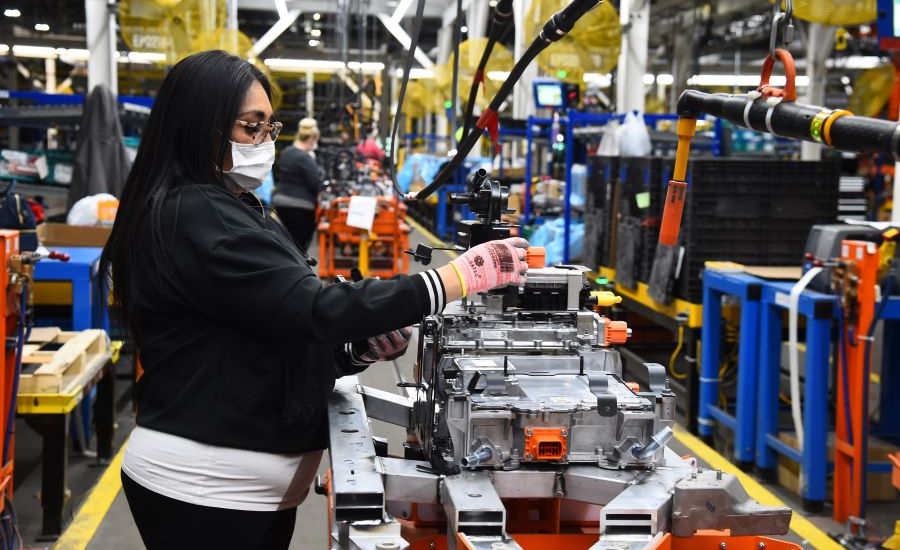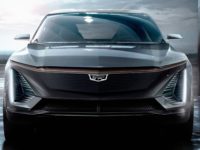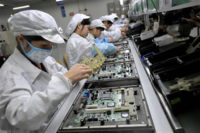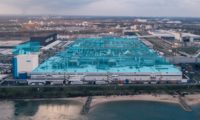DEARBORN, MI—Ford has announced a series of initiatives for sourcing battery capacity and raw materials that will enable the automaker to produce 600,000 electric vehicles by late 2023 and more than 2 million by the end of 2026.
Ford expects the compound annual growth rate for EVs to exceed 90 percent through 2026—more than double forecasted global industry growth.
Specifically, Ford plans to reach the 600,000 EV goal with the following products:
- 270,000 Mustang Mach-Es for North America, Europe and China.
- 150,000 F-150 Lightnings for North America.
- 150,000 Transit EVs for North America and Europe.
- 30,000 units of an all-new SUV for Europe, whose run rate will significantly ramp in 2024.
To meet that goal, Ford is adding lithium iron phosphate (LFP) cell chemistry to its battery portfolio, alongside its existing nickel cobalt manganese (NCM) chemistry. This is expected to create more capacity for high-demand products and reduce reliance on scarce, critical minerals, such as nickel. Moreover, at current costs, LFP batteries will bring a 10 to 15 percent bill of material savings vs. NCM batteries.
The company confirmed it has secured 100 percent of the annual battery cell capacity needed to support production of 600,000 EVs. Contemporary Amperex Technology Co. Ltd. (CATL) will provide LFP battery packs for Mustang Mach-E models for North America starting next year, as well as F-150 Lightnings in early 2024. Ford also is leveraging its long-standing connection with LG Energy Solution (LGES) and its strategic relationship with SK On to meet its battery needs for late 2023. LGES has scaled quickly and doubled capacity at its assembly plant in Wroclaw, Poland, to support incremental NCM cell production for Mustang Mach-E and E-Transit models. For its part, SK On has also boosted capacity to support production of the F-150 Lightning and E-Transits through late 2023. The company is scaling operations at its Atlanta factory and adding capacity at its Hungary operation.
The company has now sourced approximately 70 percent of the battery cell capacity it needs to support production of more than 2 million EVs by late 2026. Ford and CATL have signed a nonbinding memorandum of understanding (MOU) for CATL to supply batteries in Ford’s markets across China, Europe and North America.
Ford also announced plans to localize production of LFP batteries in North America starting in 2026. The company intends to use this additional capacity to complement three previously announced battery plants in Kentucky and Tennessee that are part of the BlueOval SK joint venture between Ford and SK On. Ford has signed an additional MOU with SK On, as well as Koç Holdings, to create a joint venture in Turkey for expanded battery capacity there.
To support these joint ventures, Ford is direct-sourcing battery cell raw materials. On July 21, the company announced it is working with major mining collaborators and has sourced most of the nickel needed through 2026 and beyond. Ford has signed nonbinding MOUs with:
- Vale Canada Ltd., to explore potential opportunities across the EV value chain.
- PT Vale Indonesia and Huayou Cobalt, for exploring a three-way nickel processing project and, separately, an off-take agreement with Huayou that collectively will provide Ford with rights to the equivalent of 84 kilotons per annum of nickel.
- BHP, for nickel supply from BHP’s Nickel West operations in Australia. The targeted multiyear agreement could start as early as 2025 and may involve additional commodities over time.
Ford also has locked several key lithium contracts. Beyond the recently announced key asset in Western Australia secured through Liontown Resources, Ford also has signed a nonbinding MOU with Rio Tinto, exploring a significant lithium off-take agreement from its Rincon project in Argentina. This is part of a multimetal MOU that leverages the scale of Ford’s aluminum business and includes a potential opportunity on copper.
Ford also continues working to localize processing of key battery materials in North America. To that end, the company is announcing:
EcoPro BM and SK On have signed a nonbinding letter of intent with Ford to establish a cathode production facility in North America.
Ioneer has signed a binding off-take agreement with Ford for lithium carbonate from Ioneer’s Rhyolite Ridge project in Nevada to support EV production beyond 2025.
Compass Minerals has signed a nonbinding MOU for lithium hydroxide and lithium carbonate from its Utah operations on the Great Salt Lake.
Syrah Resources and SK On have signed a nonbinding MOU to secure off-take for natural graphite from its processing site in Vidalia, Louisiana.


